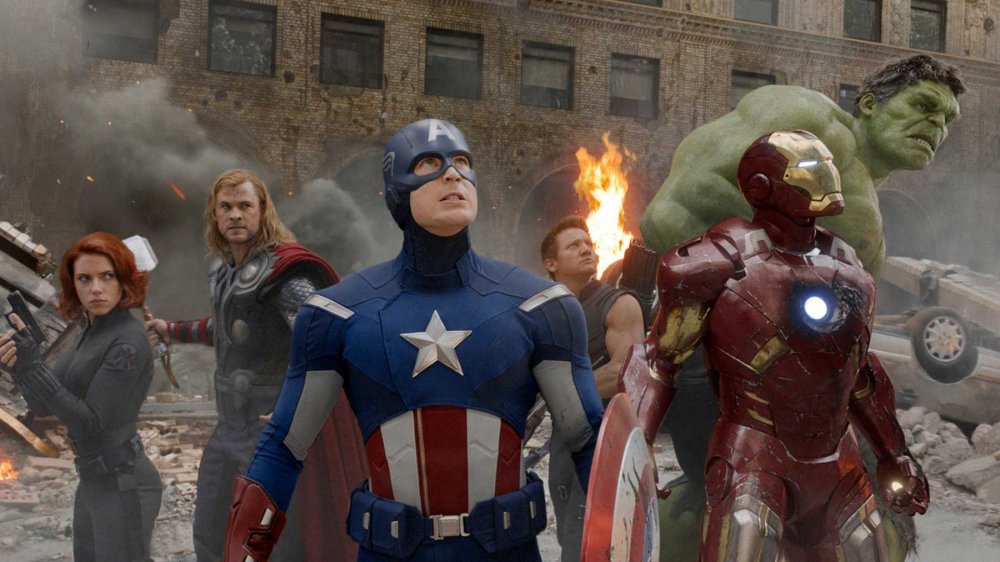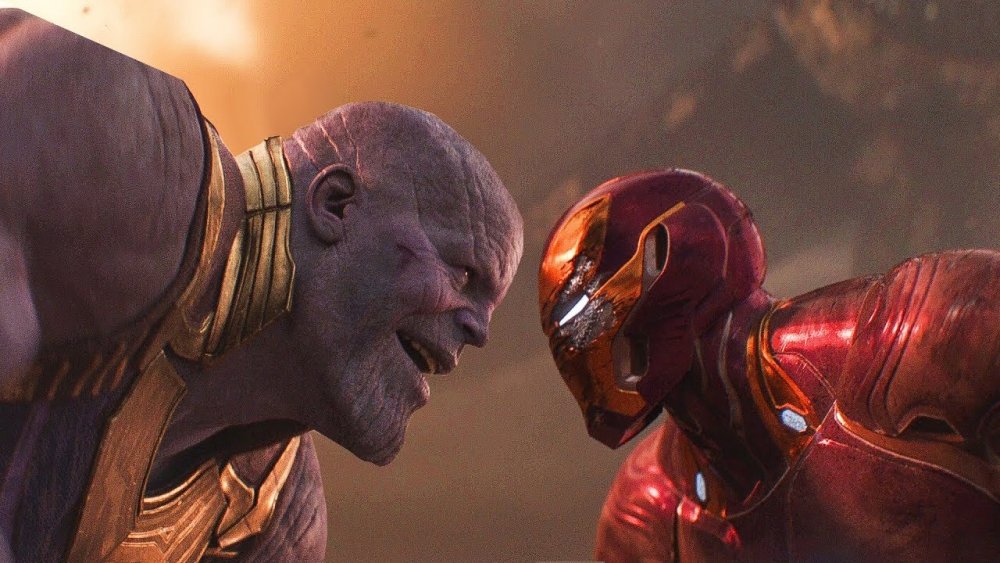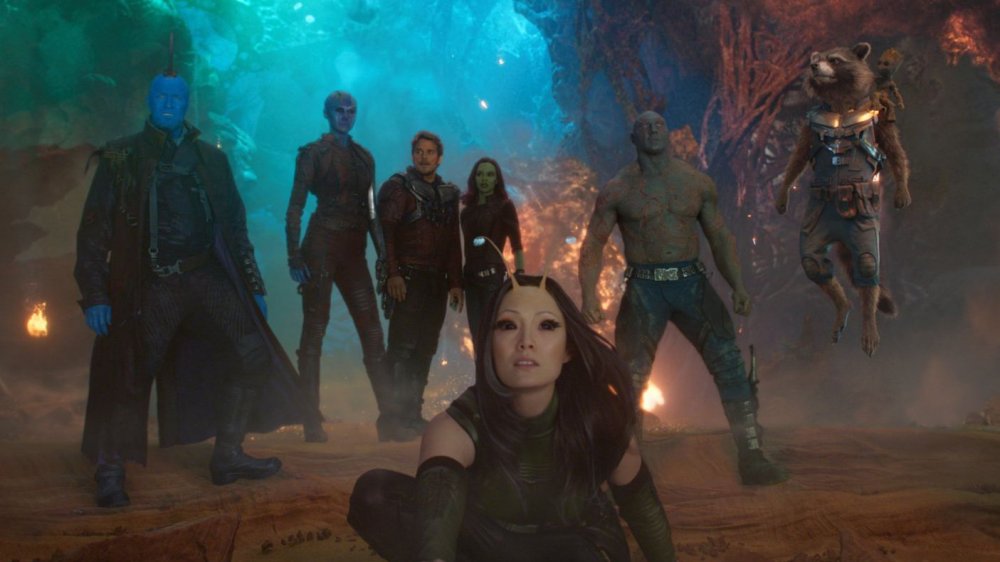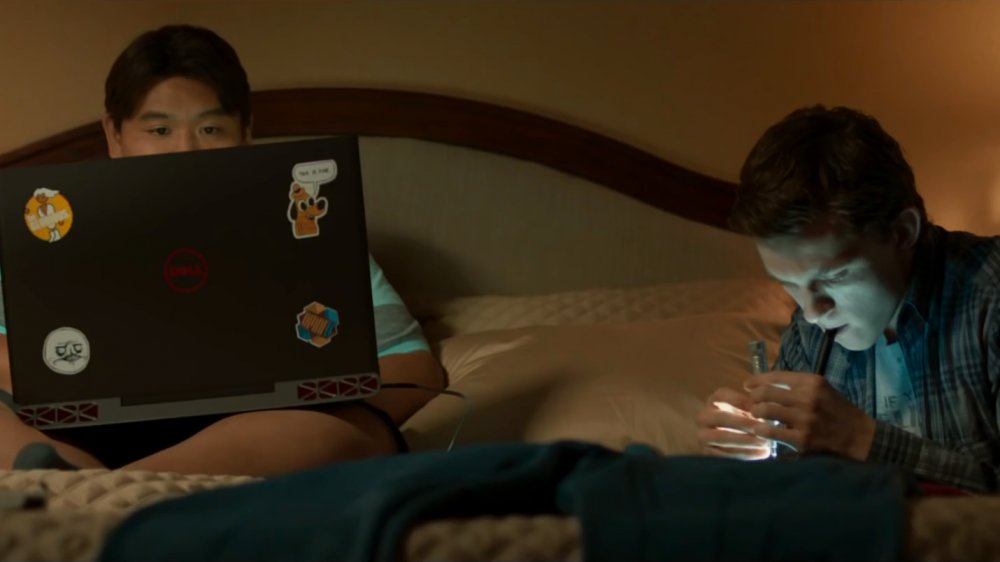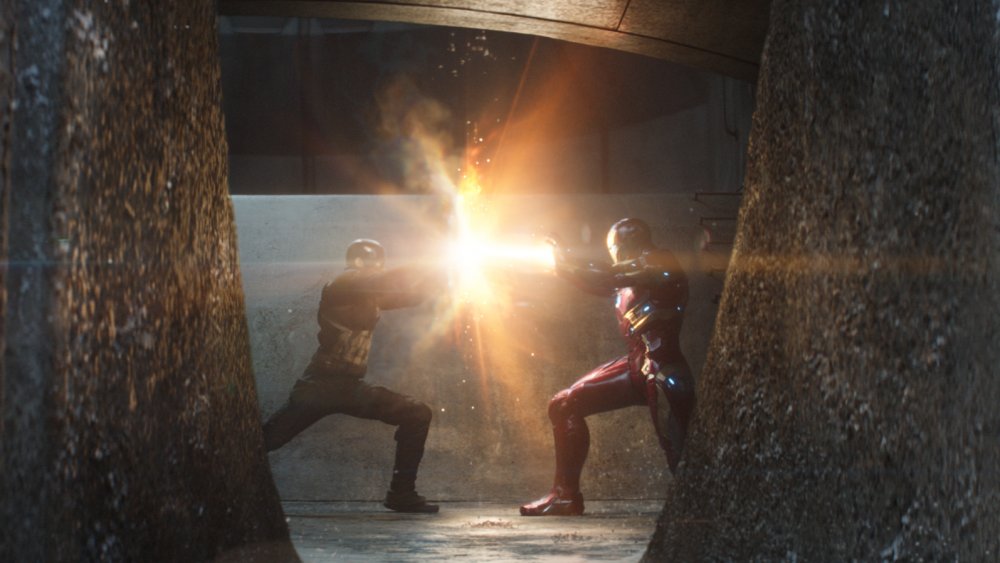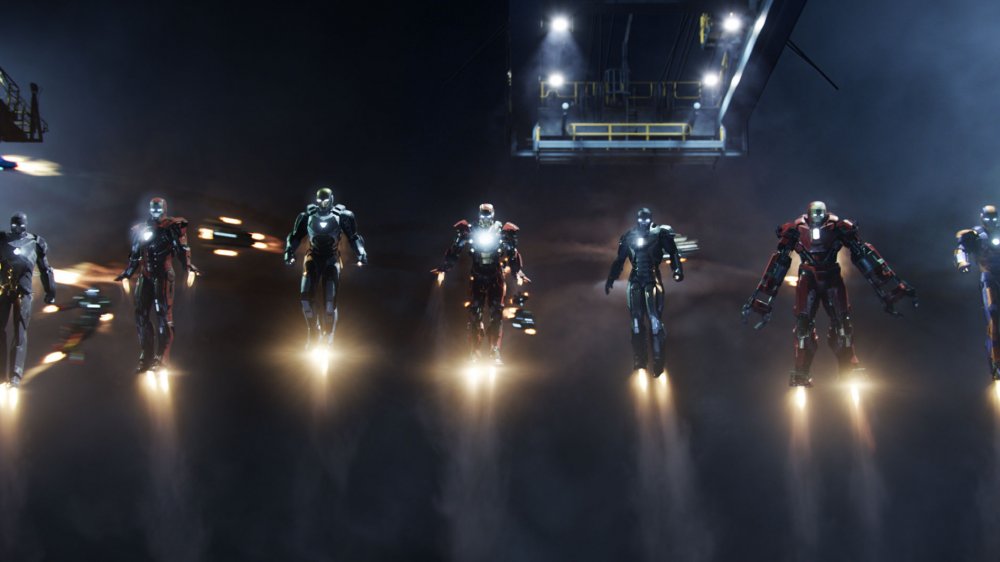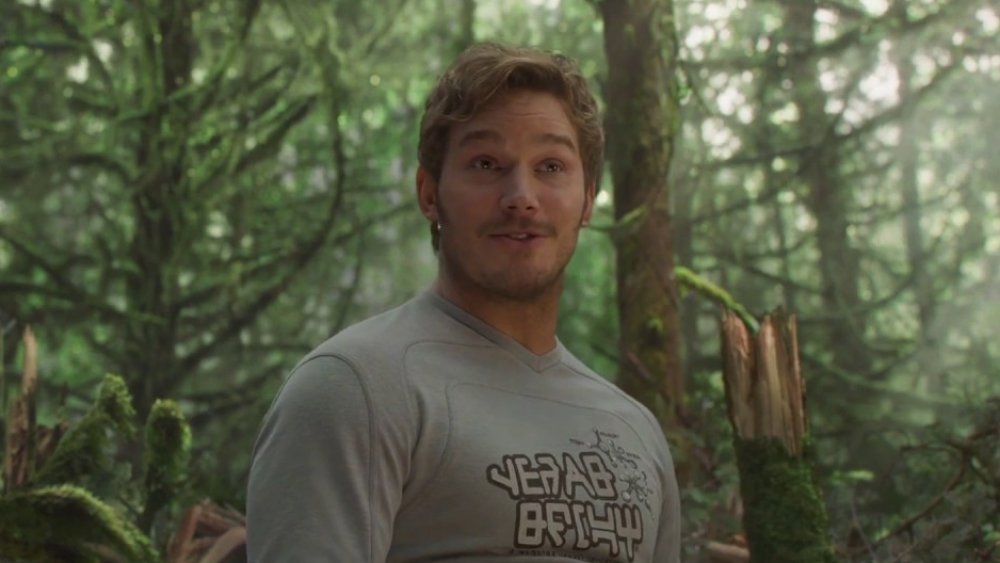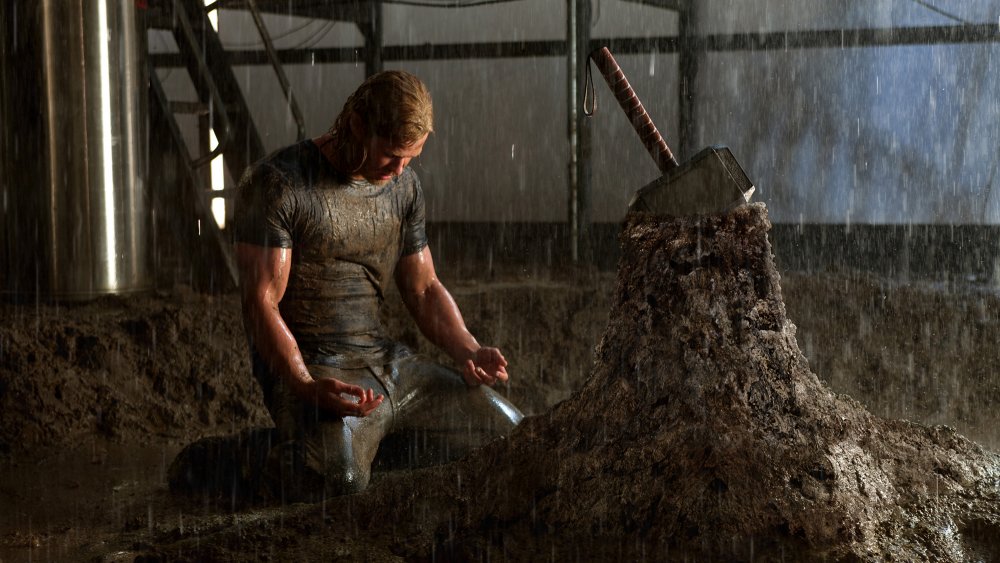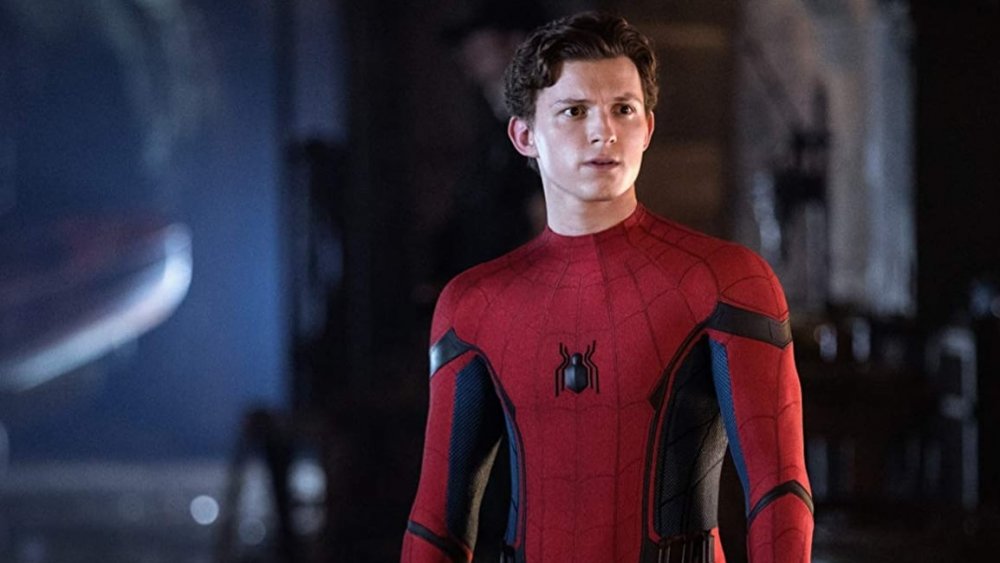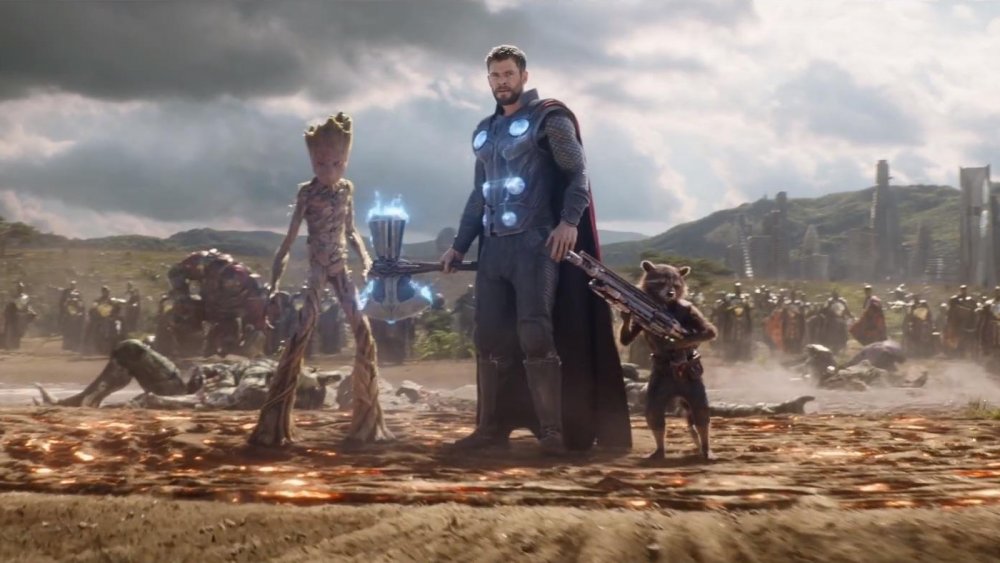Things MCU Heroes Can't Live Without
The Marvel Cinematic Universe is a vast, complicated place. One minute, you're down on Earth, watching Peter Parker navigate a high school crush, and the next, you're whizzing through deep space with Star-Lord and the gang. However, while it may be difficult to know quite what you're going to get each time you settle in for a new installment, there are still a few tried-and-true MCU tenets that can be counted on regardless of the person, time, or place involved.
For instance, if a villain pops into the picture, it's safe to expect monologues and devious plots to quickly follow. If a terrestrial sidekick runs into an overpowered alien, it's certain to lead to wide eyes and flabbergasted expressions. If a storyline starts out smooth, it's fairly safe to assume that it's just a matter of time before the turbulence sets in.
One area where there's a particularly high level of consistency is in the hero department. While they may come in all colors, shapes, and sizes, heroes in the MCU actually have several significant things in common. Sure, these may manifest in distinctly different ways, but that doesn't change the fact that, at their roots, they're part and parcel of the whole superhero schtick. So, without further ado, we'd like to present the most essential elements that MCU heroes simply can't live without.
Heroes gotta have their villains
Let's start with the obvious. Without trouble, heroes would just be, well, people. Or aliens or whatever. Sure, they'd have superpowers, genius intellects, and incredible gadgets, but without an antithesis, they wouldn't be heroes. Vision underscores this point in Captain America: Civil War when he states that the Avengers' strength invites challenge. It doesn't matter if it's Captain America taking on Red Skull, Iron Man dancing with Thanos, or Drax picking a fight with Ronin, villains are a key ingredient in the MCU hero soup. They provide that spicy sauce that makes the whole thing worth watching.
The best part is, in the MCU, villains are often more than one-dimensional snoozefests. The inhuman Ultron genuinely struggles with inner pain, loss, and a Freudian-style hatred of his creator. Thanos is a holy warrior hellbent on saving the universe by destroying half of it. Heck, Loki manages to play the part of a hero, anti-hero, and even straight-up hero depending on the time and place. There's no doubt that MCU heroes wouldn't be half as compelling as they are if they didn't stand opposite this slate of villains, resisting their schemes, coming up with retorts for their monologues, and in a really weird way, generally playing the ying to their yang.
What's a superhero without teammates?
Sure, superheroes can go it alone. Doctor Strange spends a lot of his time as a lonely, timeless vigilante. Carol Danvers lives in self-imposed isolation and generally feels like a closed book. But even characters like these team up with others from time to time. And that doesn't even begin to take into consideration other heroes like, say, the Avengers or the Guardians of the Galaxy, who are nearly inseparable from their teammates.
And why not? The MCU is a dangerous place. You never know when a Supreme Intelligence is going to stab you in the back or your boyfriend's dad is going to hunt you down and make you turn green with rage. With so much danger lurking around every corner, it's only natural that even the all-powerful superhero population would want a helping hand from time to time.
Besides, while a single hero on their own can make for some pretty fun adventures, if we're being honest, it takes the synergy of two or three heroes at the least to really get things cooking. And who can deny the awe-inspiring excitement when the whole gang gets together in one united front? It's a sensation that fans are perfectly familiar with as they've been known to literally drown out the on-screen action in their excitement when the heroes show up to help each other out of a jam.
MCU heroes need that 'guy in the chair'
While teammates are a critical piece of the MCU superhero frontlines, there's another quieter element that often goes unseen in the background — the guy (or gal) in the chair. The phrase is coined by none other than Peter Parker's bestie, Ned Leeds, who cleverly points out that every successful superhero has "a guy in a headset telling the other guy where to go." Mr. Leeds even gets to walk the walk later in Parker's first solo flick when he backs up his own sentiment by settling into the chair himself.
Now, we're not claiming that every MCU hero has an actual guy in a headset, surrounded by screens, constantly walking them through their ever-present danger. However, most of the heroes have a variety of different support people that genuinely help to bail them out of tight spots at different points in their superhero careers.
Sometimes this role is temporary, like when Black Widow slides into Whiplash's abandoned computer station at Hammer Industries Headquarters and starts feeding Tony Stark vital information in Iron Man II. And then there's Hawkeye perched high over the Big Apple as he helps keep the entire team on the same page during the Battle of New York in The Avengers. At other times, the role is more official, like J.A.R.V.I.S.' perpetual duty as Tony Stark's source of information. Either way, though, there's no doubt about the fact that MCU heroes need their guy in the chair at times.
MCU heroes live for the drama
The MCU is a dramatic place. If you think about it, though, there are actually a ton of scenes that start off with serene, tranquil settings before they're suddenly ripped to shreds by a cacophony of explosions, fistfights, gunshots, and all-around destruction. And who's involved in the catastrophe pretty much each and every time? A hero.
Now, once again, we're not saying it's their fault. They're just trying to do their duty, after all. But it's hard to deny the fact that their line of business kind of makes drama an MCU hero staple at this point. Sometimes the heroes involved are simply reacting to a dramatic situation, thus leading to greater drama. For example, take the Avengers in Wakanda during Infinity War, where their presence turns a quick pit stop to get an Infinity Stone out of Vision's head into an all-out battle brawl on the plains outside the city.
Make no mistake, though. At other times, the drama is definitely initiated by the heroes themselves. Ultron never would've shredded Sokovia if he hadn't been dramatically created by Tony Stark (and without the team's knowledge, no less) in the first place. Heck, the entire Captain America: Civil War storyline is dripping with drama, and the only "villain" around is a pitifully resentful human with a grudge. Regardless of its form, cause, or genesis, if there's drama on the MCU dinner table, you can bet it'll attract some heroes before long.
They've got a revolving wardrobe
Heroes in the MCU may like to focus on weapons, skills, and strategies, but they sure do like to look good while they're doing so. Er, perhaps "good" is the wrong word. Sleek? Flashy? Colorful? Regardless, no matter who you're talking about, sooner or later, they're going to don a super suit. Not only that, but most of the heroes create their own unique look that suits — pun intended — their own splashy style. From Black Panther's dusky, skin-tight vibranium to Thor's vibrant red cape to Cap's bright blue American ass, you can rest assured that an MCU hero is going to make a statement every time they suit up.
The best part is, the crew's eclectic crime-fighting garb doesn't even remain consistent for each character. Many heroes maintain a revolving wardrobe that can change as quickly as the weather. Captain America trots out an endless parade of colorful attire during his 11 appearances in the Infinity Saga. Iron Man's obsession with improvement leads to 85 different versions of his iconic armor over the course of a decade. In a handful of films, Peter Parker goes from some cutesy homespun garb to his snazzy new suit from Stark, then his Iron Spider suit and his black stealth suit. Even Black Widow's ever-evolving hairstyles find no end to the inspiration. The point is, nothing quite completes an MCU hero so much as their dependably kaleidoscopic attire.
They love their snarky comments and one-liners
We already mentioned the MCU villains' collective propensity to monologue, but it isn't really fair to heap the majority of the verbally related accusations on the bad guys. Let's be real here. MCU heroes are just as apt to bust out an unnecessary comment or a witty one-liner as their foes are to go on long-winded rants. This can happen in a variety of different ways, too. For instance, there's the "villain burn" as exemplified by Tony Stark's quip, "You throw another moon at me, and I'm gonna lose it." And then there's Hulk's flippant "puny god" retort as he leaves Loki incapacitated and imprinted into a cement floor.
But the one-liner gems don't stop there. They carry right over into our beloved heroes' personal conversations, as well. Obviously, Stark is the king of the cynical comment, but the epic jabs go way beyond him. Star-Lord calls Rocket a trash panda, Black Widow refers to Cap as a fossil, Thor mentions that his brother was adopted to avoid responsibility for Loki's actions, Steve Rogers says "I can do this all day" more often than he goes to the bathroom, and the list goes on and on and on.
Basically, if a conversation is being had — and sometimes even if it isn't — you can expect a hero in the general vicinity to add their own sweet and condensed two cents sooner or later. It's just what these guys do. Don't expect them to break the habit any time soon.
They always hit a low point
It doesn't matter if you're tracing a hero's origins story, watching a middle-of-the-franchise adventure, or crying during their final film, you can rest assured that MCU heroes are going to hit a low point as each and every story unfolds. After all, what fun would it be to watch films that consisted of a perfectly polished hero quickly and easily putting a villain in their place and then heading home in time for supper? No, their penchant for drama makes a smooth execution of justice nearly impossible.
Instead, each hero can and must go through a low point in order to turn things around and eventually come out on top. Consider it a springboard from which they can rise to greater heights. Sometimes this springboard is fairly cut and dry. For example, take Thor's banishment to Earth in his first film. The dude disobeys his father, illegally visits another planet, kills some of their inhabitants, and sparks an interplanetary war. Yep, pretty sure that qualifies as a low point.
At other times, the low points are more nuanced. Thor's brother, Loki, for instance, begins with an extended low point (the dude is a straight-up villain for, like, the entire first phase of the MCU). However, he eventually rises to a redemptive ending. No matter how you slice it, though, these guys really do like the drama of a premature fall, especially if it directly contrasts with a heroic finale.
MCU heroes lack a secret identity
Secret identities are a treasured tradition of our comic book past. It's one of the primary reasons that so many heroes take the time to don masks throughout their careers. With that said, the MCU seems to have some sort of a beef with the concept of secret superhero identities.
The issue is on display right from square one. Tony Stark can't even make it through a single movie without taking to the podium to announce to the world that he's Iron Man. He's not alone in his openness, either. Peter Quill can't help telling anyone and everyone who will listen to him that he's Star-Lord. For goodness sake, Groot's entire vocabulary consists of revealing his identity. Hawkeye does manage to keep his family surprisingly secret, but he's personally an open member of the Avengers. Even when he becomes Ronin, the secret persona lasts for like ten seconds.
And then there's Peter Parker. The famously secret wall-crawler managed to make it through an impressive four appearances without his identity being widely revealed. He even makes it to the end credits of his second solo film still masked — except, yeah, then the J. Jonah Jameson/Quentin Beck one-two punch metaphorically rips off the mask and reveals his identity to the world. Geez. Is it just us, or does it feels like the MCU has some deep privacy issues going on here?
MCU heroes are all about the crossovers
Finally, we have the crossover obsession. Once upon a time, superheroes in the MCU tended to stick to their own turf — especially in their own franchises. Thor dealt with his issues privately in a desert in New Mexico, with the exception of a quick cameo from Hawkeye, of course. Stark spent countless hours processing his newfound calling as a superhero in his own mansion. Steve Rogers and Carol Danvers started their careers so far back that there weren't really any other supers to team up with, period.
However, over time, the plethora of heroes in the MCU have become addicted to popping into each other's storylines. We're not talking about teammates or support staff here. We're talking about bona fide crossovers. The Hulk and Doctor Strange in Thor: Ragnarok, the Guardians of the Galaxy in Infinity War and Endgame, Iron Man in Spider-Man: Homecoming, Black Widow in the Iron Man and Captain America franchises, freaking everyone in Captain America: Civil War. Whether they're meeting up in Wakanda or bumping into each other on the other side of the universe, MCU heroes love to indulge in crossovers. And we have to admit, so do we.
